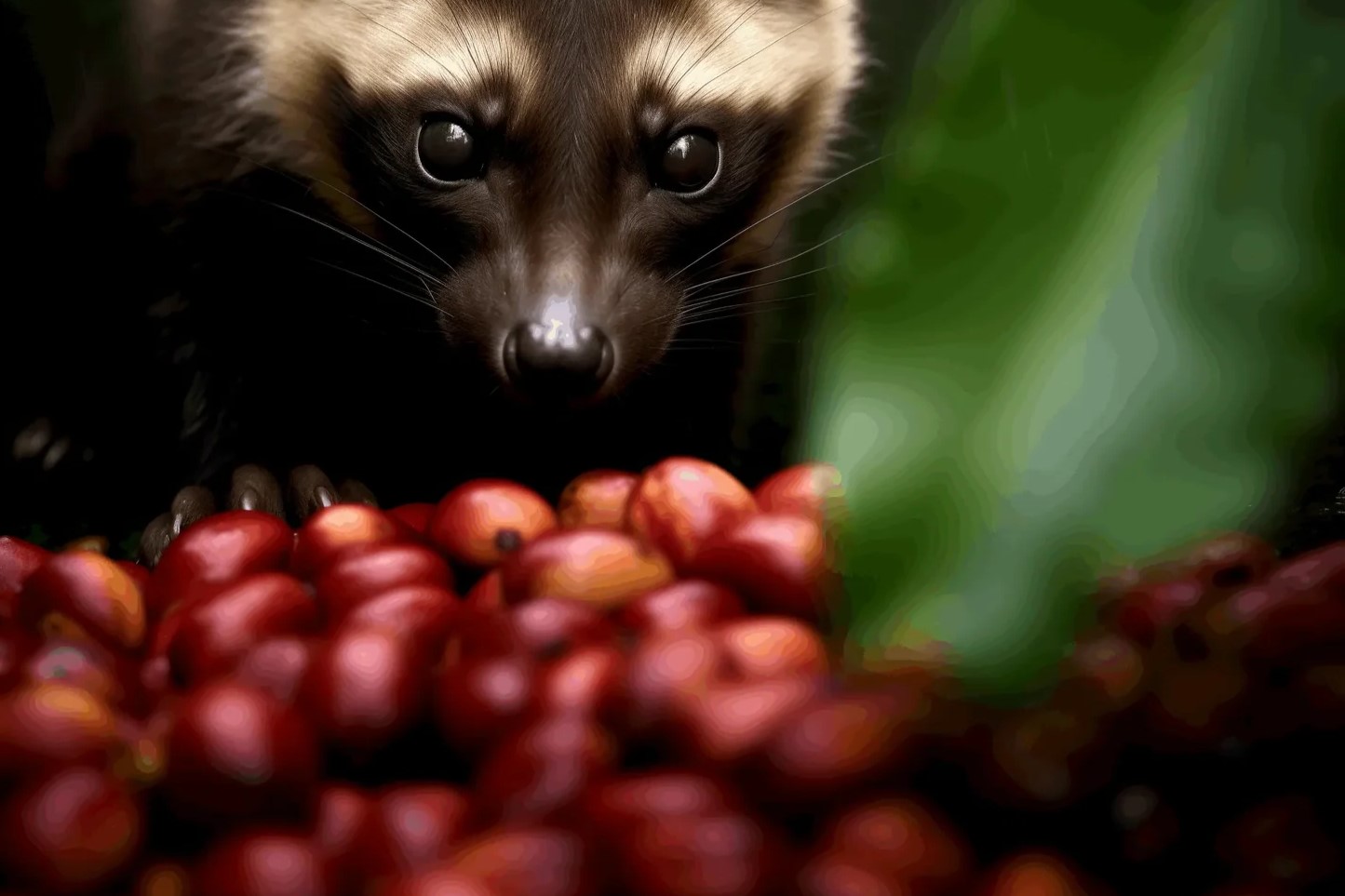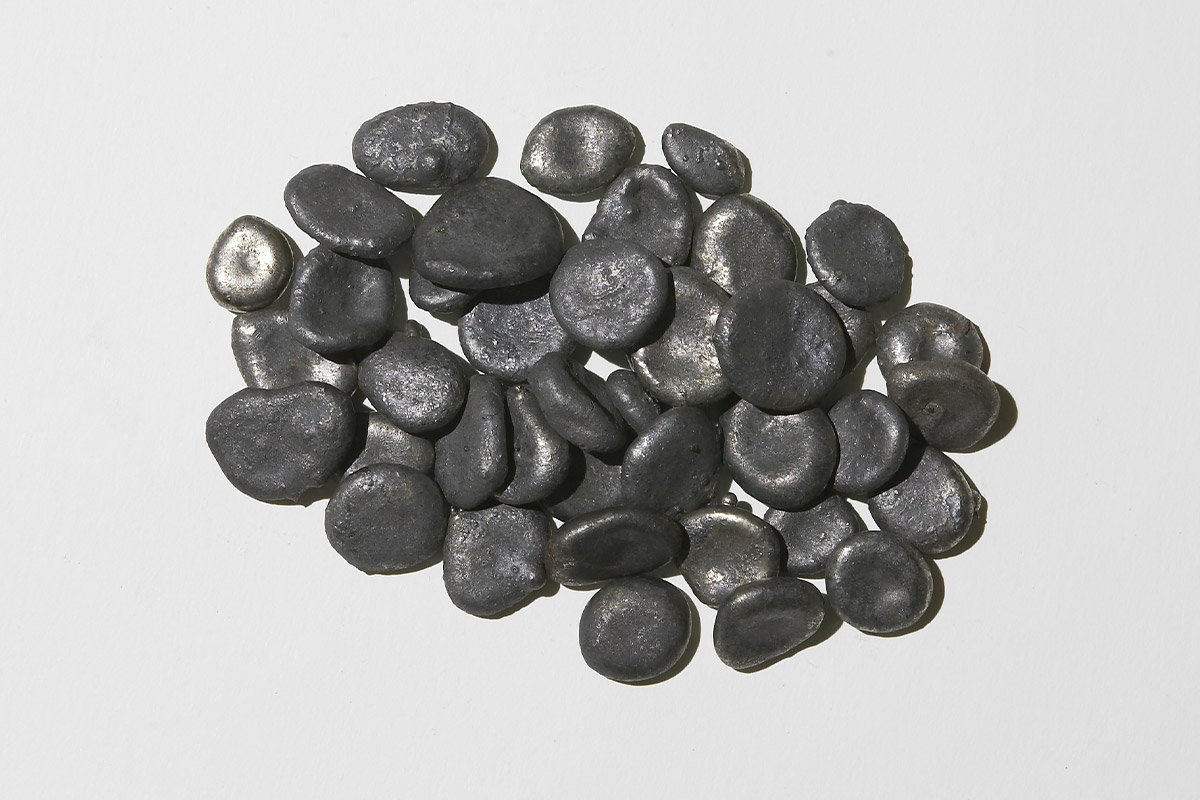
Kopi Luwak, often called "civet coffee," is one of the most unique and expensive coffees in the world. But what makes it so special? Kopi Luwak is made using coffee beans that have been eaten and then excreted by the Asian palm civet. This unusual process is believed to enhance the flavor of the coffee, making it smoother and less acidic. However, there's more to this coffee than just its production method. From its origins in Indonesia to the ethical concerns surrounding its production, Kopi Luwak has a rich and complex story. Ready to learn some fascinating facts about this extraordinary brew? Let's dive in!
Key Takeaways:
- Kopi Luwak, also known as civet coffee, is a unique and expensive coffee made from beans that have been eaten and excreted by civets. Its smooth flavor and complex aroma make it a sought-after luxury item.
- The production of Kopi Luwak has raised ethical concerns, particularly regarding the treatment of civets. Consumers should be cautious and buy from reputable sources to ensure ethical and sustainable production.
What is Kopi Luwak?
Kopi Luwak, also known as civet coffee, is one of the most unique and expensive coffees in the world. Its production process involves a small mammal called the Asian palm civet. Here are some fascinating facts about this intriguing coffee.
-
Kopi Luwak is made from coffee beans that have been eaten and excreted by civets. The beans undergo fermentation in the civet's digestive system, which is believed to enhance the coffee's flavor.
-
The name 'Kopi Luwak' comes from the Indonesian words for coffee ('kopi') and civet ('luwak'). This coffee originated in Indonesia, where the process was discovered by local farmers.
-
Kopi Luwak is one of the most expensive coffees in the world. Prices can range from $100 to $600 per pound, depending on the quality and origin.
-
The unique fermentation process inside the civet's stomach is said to reduce the coffee's bitterness. This results in a smoother, more aromatic cup of coffee.
-
Civets are nocturnal animals. They forage for food, including coffee cherries, at night.
The History of Kopi Luwak
Understanding the history of Kopi Luwak gives insight into its cultural significance and how it became a luxury item.
-
Kopi Luwak was discovered during the Dutch colonial period in Indonesia. Local farmers were forbidden from picking coffee beans for their own use, so they collected beans from civet droppings instead.
-
The coffee gained popularity among the Dutch plantation owners. They appreciated its unique flavor and began to market it as a delicacy.
-
Kopi Luwak has been featured in various media, including movies and TV shows. Its exotic nature and high price make it a topic of fascination.
-
The coffee is now produced in several countries, including the Philippines, Vietnam, and Thailand. Each region has its own methods and traditions for producing Kopi Luwak.
-
Traditional methods of collecting Kopi Luwak involve foraging for civet droppings in the wild. This practice is still followed in some areas to ensure the authenticity of the coffee.
The Production Process
The production of Kopi Luwak is labor-intensive and involves several steps to ensure the quality of the final product.
-
Civets are selective eaters. They choose only the ripest and best coffee cherries, which contributes to the quality of the beans.
-
After the beans are excreted, they are collected by farmers. This process can be time-consuming and requires careful handling.
-
The beans are thoroughly cleaned and dried. This step is crucial to remove any contaminants and prepare the beans for roasting.
-
Roasting Kopi Luwak beans requires special techniques. The unique properties of the beans mean they need to be roasted at specific temperatures to bring out their best flavors.
-
Some producers use ethical and sustainable practices. They ensure that civets are not harmed or kept in captivity, which is a growing concern in the industry.
The Taste and Aroma
Kopi Luwak's distinct taste and aroma set it apart from other coffees. Here are some facts about what makes it so special.
-
The coffee is known for its smooth, rich flavor. The fermentation process inside the civet's stomach reduces acidity and bitterness.
-
Kopi Luwak has a complex aroma. It often features notes of chocolate, caramel, and even earthy undertones.
-
The coffee's body is typically full and creamy. This makes it a favorite among coffee connoisseurs.
-
Each cup of Kopi Luwak can taste different. Factors like the civet's diet, the region of production, and the roasting process all influence the final flavor.
-
Some people describe the taste as 'earthy' or 'mushroomy.' These unique flavor notes are part of what makes Kopi Luwak so intriguing.
Ethical Concerns and Controversies
The production of Kopi Luwak has raised several ethical concerns, particularly regarding the treatment of civets.
-
Many civets are kept in captivity under poor conditions. This has led to calls for more humane and ethical production methods.
-
There are certifications available for ethically produced Kopi Luwak. These certifications ensure that the coffee is sourced from wild civets or from farms that treat their animals well.
-
Some producers have switched to using wild civets exclusively. This helps to ensure that the animals are not harmed or stressed.
-
The high demand for Kopi Luwak has led to an increase in counterfeit products. Consumers need to be cautious and buy from reputable sources.
-
Efforts are being made to educate consumers about ethical Kopi Luwak. This includes promoting awareness of the issues and encouraging responsible purchasing.
Health Benefits and Risks
Like all coffee, Kopi Luwak has both potential health benefits and risks. Here are some facts to consider.
-
Kopi Luwak contains antioxidants. These compounds can help protect the body from damage caused by free radicals.
-
The coffee may have anti-inflammatory properties. This can be beneficial for overall health and well-being.
-
Drinking Kopi Luwak in moderation can improve mental alertness. The caffeine content helps to boost concentration and focus.
-
There are concerns about contamination. If the beans are not properly cleaned, they could carry harmful bacteria.
-
Some people may experience digestive issues. The unique fermentation process might not agree with everyone's stomach.
Fun Facts About Kopi Luwak
Beyond its production and taste, Kopi Luwak has some fun and quirky facts that make it even more interesting.
-
Kopi Luwak is sometimes called 'cat poop coffee.' This nickname comes from the fact that civets are often mistaken for cats.
-
The coffee has been featured in the movie 'The Bucket List.' This helped to boost its popularity worldwide.
-
Kopi Luwak is often given as a luxury gift. Its high price and unique production make it a sought-after present.
-
Some coffee shops offer Kopi Luwak tasting experiences. These events allow coffee lovers to sample the rare brew and learn more about its production.
-
There are Kopi Luwak festivals in some regions. These events celebrate the coffee and its cultural significance, often featuring tastings, workshops, and more.
The Final Sip
Kopi Luwak, often called the world's most expensive coffee, has a unique production process involving civet cats. This coffee's distinct flavor comes from the beans passing through the digestive system of these animals. While some swear by its taste, others raise ethical concerns about the treatment of civet cats in production facilities.
Understanding the facts about Kopi Luwak helps coffee lovers make informed choices. Whether you're intrigued by its rarity or cautious about its origins, knowing the details can guide your decision. Always consider the source and the practices behind your cup of coffee.
In the end, Kopi Luwak remains a fascinating topic in the coffee world. Its story blends nature, culture, and controversy, making it a subject worth exploring for any coffee enthusiast. Enjoy your coffee journey, wherever it takes you!
Frequently Asked Questions
Was this page helpful?
Our commitment to delivering trustworthy and engaging content is at the heart of what we do. Each fact on our site is contributed by real users like you, bringing a wealth of diverse insights and information. To ensure the highest standards of accuracy and reliability, our dedicated editors meticulously review each submission. This process guarantees that the facts we share are not only fascinating but also credible. Trust in our commitment to quality and authenticity as you explore and learn with us.


